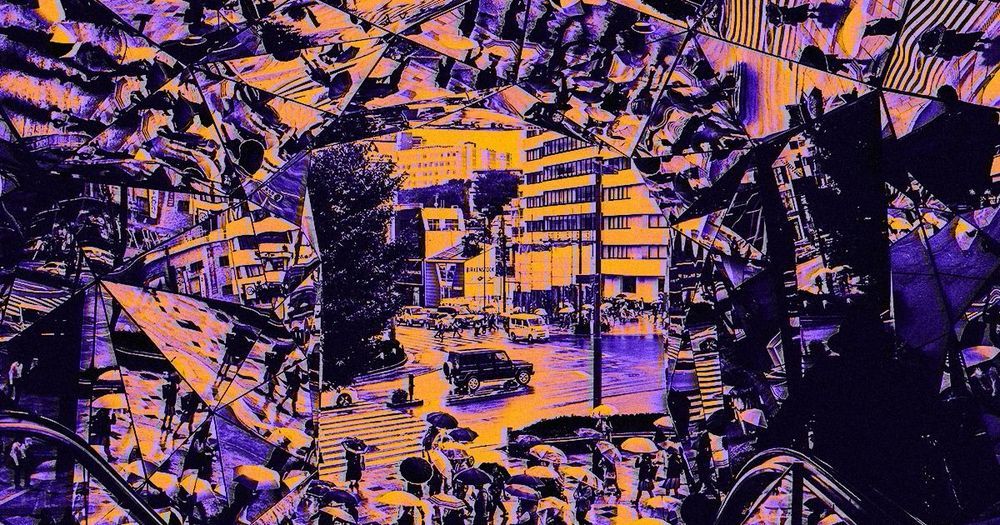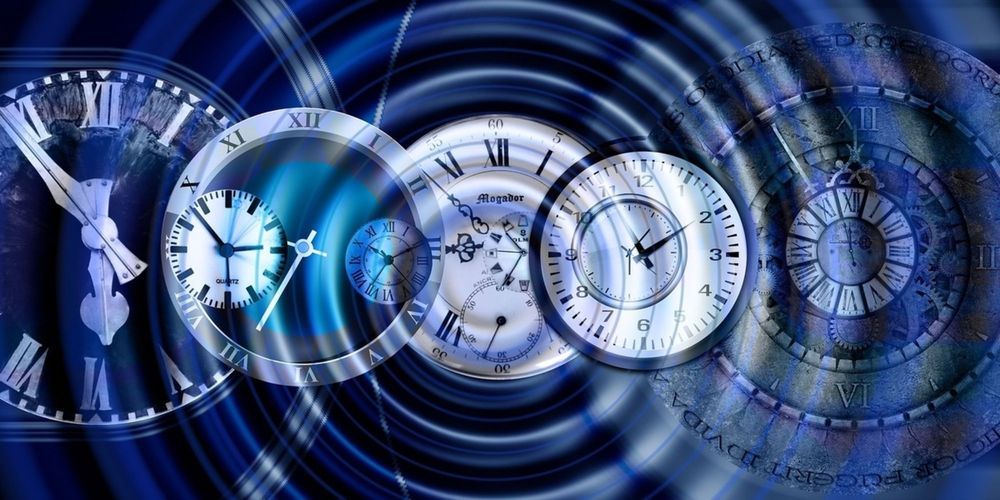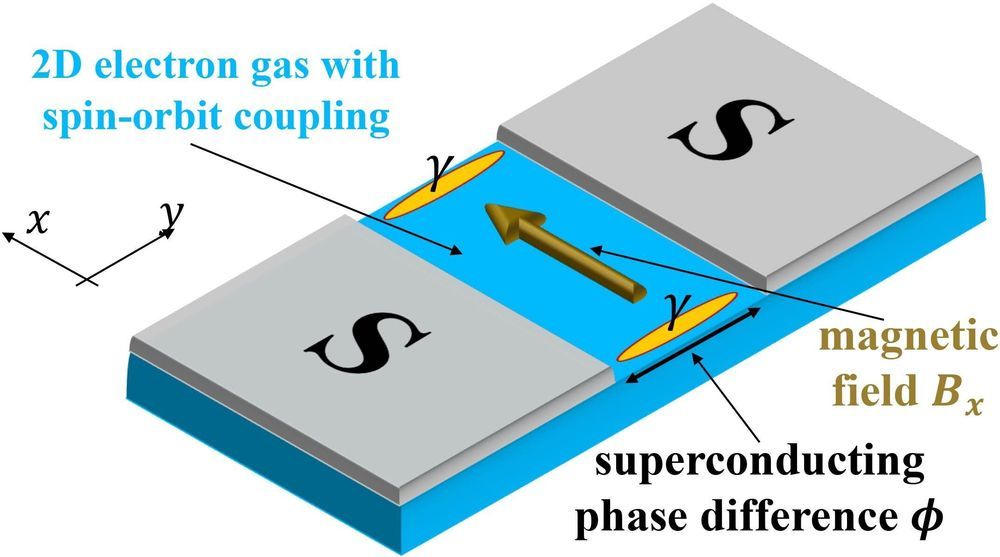Archive for the ‘quantum physics’ category: Page 631
May 15, 2019
The Thesis on Consciousness and Experiential Realism: Digital Philosophy Perspective
Posted by Alex Vikoulov in categories: alien life, computing, information science, quantum physics
A radically new view articulated now by a number of digital philosophers is that consciousness, quantum computational and non-local in nature, is resolutely computational, and yet, has some “non-computable” properties. Consider this: English language has 26 letters and about 1 million words, so how many books could be possibly written in English? If you are to build a hypothetical computer containing all mass and energy of our Universe and ask it this question, the ultimate computer wouldn’t be able to compute the exact number of all possible combinations of words into meaningful story-lines in billions of years! Another example of non-computability of combinatorics: if you are to be born and live your own life again and again in our Quantum Multiverse, you could live googolplex (10100) lives, but they all would be somewhat different — some of them drastically different from the life you’re living right now, some only slightly — never quite the same, and timeline-indeterminate.
Another kind of non-computability is akin to fuzzy logic but based on pattern recognition. Deeper understanding refers to a situation when a conscious agent gets to perceive numerous patterns in complex environments and analyze that complexity from the multitude of perspectives. That is beautifully encapsulated by Isaiah Berlin’s quote: “To understand is to perceive patterns.” The ability to recognize patterns in chaos is not straightforwardly algorithmic but rather meta-algorithmic and yet, I’d argue, deeply computational. The types of non-computability that I just described may somehow relate to the non-computable element of quantum consciousness to which Penrose refers in his work.
May 15, 2019
Physicists Are Starting to Suspect Physical Reality Is an Illusion
Posted by Quinn Sena in categories: mathematics, particle physics, quantum physics
Given that everything at its base atom is moving maybe our interpretation of reality may be different than its actuality. From shooting photons bouncing off surfaces the world is a cacophony of all sorts of things happening at once.
A provocative new column in Scientific American floats the idea that what’s fundamentally real in the universe — its actual, base reality — isn’t the quarks, fields, and quantum phenomena that seem to comprise it.
Instead, according to scientist and philosopher Bernardo Kastrup, some are starting to suspect that matter itself is an illusion — and that the only real thing is information.
Continue reading “Physicists Are Starting to Suspect Physical Reality Is an Illusion” »
May 14, 2019
Researchers successfully sent a simulated elementary particle back in time
Posted by Quinn Sena in categories: cosmology, particle physics, quantum physics
The results are fascinating and spur the imagination, but don’t start investing in flux capacitors yet. This experiment also shows us that sending even a simulated particle back in time requires serious outside manipulation. To create such an external force to manipulate even one physical particle’s quantum waves is well beyond our abilities.
“We demonstrate that time-reversing even ONE quantum particle is an unsurmountable task for nature alone,” study author Vinokur wrote to the New York Times in an email [emphasis original]. “The system comprising two particles is even more irreversible, let alone the eggs — comprising billions of particles — we break to prepare an omelet.”
A press release from the Department of Energy notes that for the “timeline required for [an external force] to spontaneously appear and properly manipulate the quantum waves” to appear in nature and unscramble an egg “would extend longer than that of the universe itself.” In other words, this technology remains bound to quantum computation. Subatomic spas that literally turn back the clock aren’t happening.
Continue reading “Researchers successfully sent a simulated elementary particle back in time” »
May 14, 2019
Indeterminate nature: the resurgence of quantum biology
Posted by Quinn Sena in categories: biological, quantum physics
A melding of biology and physics first suggested in the 1920s is enjoying a revival as evidence mounts. Stephen Fleischfresser reports.
May 14, 2019
Physicists invent flux capacitor, break time-reversal symmetry
Posted by Quinn Sena in categories: futurism, quantum physics
In the popular movie franchise “Back to the Future”, an eccentric scientist creates a time machine that runs on a flux capacitor.
Now a group of actual physicists from Australia and Switzerland have proposed a device which uses the quantum tunneling of magnetic flux around a capacitor, breaking time-reversal symmetry.
The research, published this week in Physical Review Letters, proposes a new generation of electronic circulators, which are devices that control the direction in which microwave signals move.
Continue reading “Physicists invent flux capacitor, break time-reversal symmetry” »
May 13, 2019
Quantum world-first—researchers reveal accuracy of two-qubit calculations in silicon
Posted by Klaus Baldauf in category: quantum physics
For the first time ever, researchers have measured the fidelity—that is, the accuracy—of two-qubit logic operations in silicon, with highly promising results that will enable scaling up to a full-scale quantum processor.
May 12, 2019
The End of Theoretical Physics As We Know It
Posted by Genevieve Klien in categories: computing, quantum physics
Computer simulations and custom-built quantum analogues are changing what it means to search for the laws of nature.
May 10, 2019
Holographic tech could be key to future quantum computers
Posted by Klaus Baldauf in categories: computing, encryption, holograms, quantum physics
May 10, 2019
Computing faster with quasi-particles
Posted by Quinn Sena in categories: computing, particle physics, quantum physics
Majorana particles are very peculiar members of the family of elementary particles. First predicted in 1937 by the Italian physicist Ettore Majorana, these particles belong to the group of so-called fermions, a group that also includes electrons, neutrons and protons. Majorana fermions are electrically neutral and also their own anti-particles. These exotic particles can, for example, emerge as quasi-particles in topological superconductors and represent ideal building blocks for topological quantum computers.
Going to two dimensions
On the road to such topological quantum computers based on Majorana quasi-particles, physicists from the University of W\xFCrzburg together with colleagues from Harvard University (USA) have made an important step: Whereas previous experiments in this field have mostly focused on one-dimensional systems, the teams from W\xFCrzburg and Harvard have succeeded in going to two-dimensional systems.


















